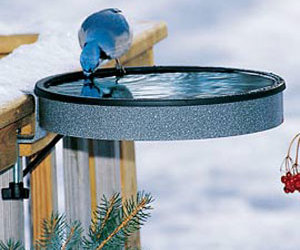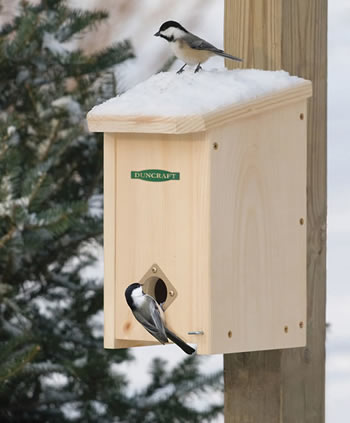
If you live in Minnesota, you have to find things to like about winter if you're going to survive here. One of the pleasures of winter is watching the birds out your window while sipping a warm cup of coffee or tea. There's a sweet beauty in seeing a bright, red cardinal against a snow-filled evergreen or a black-capped chicadee flitting between the birch trees in winter. If you, too, love watching the birds in winter there are certain things you can do to assure that they will visit your yard throughout the long, cold season.
1. Provide something to eat
Cold weather increases a bird's caloric requirements at a time when food is most scarce. There are no insects flying around. Seeds, weeds, fruits, and nuts are often used up or covered in snow.
And while most birds can find some sources of food during the winter, if you provide food for them in feeders, they will flock to your yard. The key is that you need to provide food throughout the entire winter since the birds that are visiting your feeders will start to rely on them as a food source.

You can keep your feeders stocked with the essentials like suet, Nyger thistle seed, and black sunflower seed. Peanuts are also a very good food source full of essential fats. These foods will feed the majority of birds for a wide variety of visitors. And if you want to keep the squirrels away from your bird feeders, stock up on stalks of dried corn cobs for them.
2. Water is crucial, and scarce, during the winter
Though food is scarce in winter, dehydration can be a bigger threat to birds than starvation. Fewer non-frozen sources of water exist. Though birds can eat snow, it takes much more precious energy for a bird to eat snow and warm it to body temperature than it does for them to drink unfrozen water.

Water is not only important for hydration, but it also helps birds preen their feathers. Without proper preening, birds' feathers won't stay positioned and aligned. Feathers out of alignment in winter create gaps in insulation, which makes birds lose body heat faster.
We can give birds access to unfrozen water right in our backyards by providing a heated birdbath. Or, we can use an existing birdbath and add a heating element. Most of these units turn on and off automatically when temperatures dip below freezing.
3. Give them someplace warm to sleep

There are a number of species of birds, like the chicadee, that stay warm at night by roosting with other birds in tree cavities or man-made nest boxes. We can help by cleaning nests and other debris out of our birdhouses at the end of the breeding season, so birds can use them for roosting in winter.
Source: Excerpts taken from Drs. Foster and Smith.

No comments:
Post a Comment